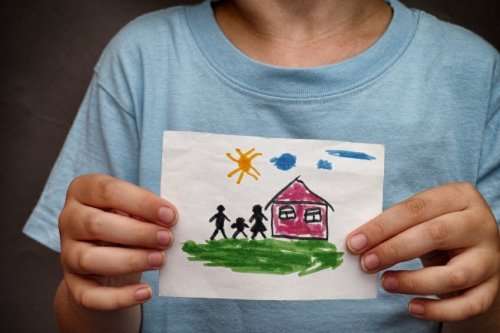Majority of children in care feel it has improved their lives—but younger children need more support

The largest study of its kind, published today [19 February], has revealed 83 per cent of looked after children and young people feel being in care has improved their lives.
The "Our Lives Our Care" report, published by the charity Coram Voice and the University of Bristol, measured the views of 2,263 people across 16 local authority areas.
It found that the longer children and young people have spent in care, the more likely they are to have moderate to high levels of wellbeing.
While the majority of young people are positive about their experiences of care, the findings highlight where improvements are needed, particularly for younger children.
Of the youngest children surveyed (four to seven-year-olds), over half (53 per cent) thought it had not been fully explained to them why they were in care, and almost a quarter (23 per cent) were unsure of who their social worker was.
In addition, almost a fifth (19 per cent) of eight to 10-year-olds do not feel listened to or included in decisions made about them.
Professor Julie Selwyn CBE, Director of the University of Bristol's Hadley Centre for Adoption and Foster Care Studies in the School for Policy Studies and lead author of the study, said: "The results of the survey show that most children and young people are flourishing in care but about 18 per cent of young people (11 to 18-year-olds) are not.
"Young people with low well-being did not feel settled and felt that they were being moved from placement to placement. The detrimental impact of a lack of a trusted adult in these children's lives cannot be over-estimated."
The study is part of the Bright Spots programme which enables local authorities to find out directly from young people in care what wellbeing means to them and what areas need to be improved.
The programme is highlighted in the Department for Education's recent Fostering Stocktake report, with a recommendation that 'all local authorities use Bright Spots, or similar to survey approaches regularly and systematically to measure all children's experience of fostering."
The latest government figures show there are over 72,000 children in care in England, with the largest majority in care due to parental abuse and neglect.
While official data is published on areas such as placement moves and educational and employment outcomes, the Bright Spots programme is the first to focus on how children feel themselves about their wellbeing and their lives in care including relationships, opportunities and support received. It is also the only study of its kind to survey children as young as four.
More information: For more information, see the "Our Lives Our Care" report: www.coramvoice.org.uk/sites/de … Our-Care-report5.pdf



















